Meet the students from the University of Portsmouth now working on the NHS front line during the pandemic
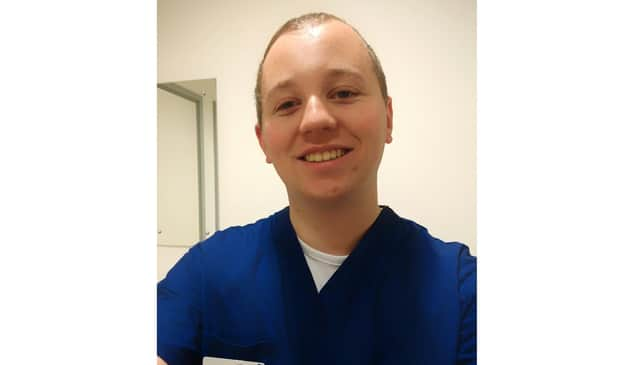

And in Portsmouth it's no different. Nursing and paramedic students from the University of Portsmouth have taken on roles at QA Hospital and local ambulance stations outside their studies and placements.
So far 64 adult nursing students in their third year, who were close to graduating, are working in the NHS in employed roles, which will count towards their final qualification.
Advertisement
Hide AdAdvertisement
Hide AdAnd a further 100 second-year adult nursing students are set to be placed in hospitals soon.
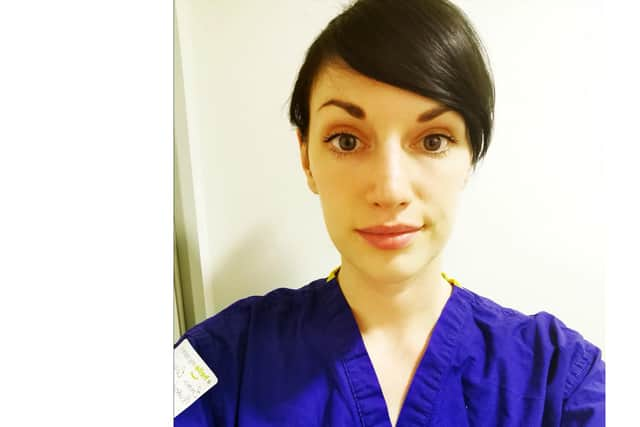

Dr Jason Oakley, the head of the university's school of health and care professions, said: 'The response of our students and staff to support the NHS during the pandemic has been incredible. They are a credit to themselves, their professions and the university.'
We spoke to some of the students who have taken on medical work during the Covid-19 outbreak.
FOR third-year adult nursing student Diana Rasoul, working at QA during the pandemic ‘wasn’t a question.’
Advertisement
Hide AdAdvertisement
Hide AdThe 23-year-old from London, who lives in Cosham, is now working full-time on the hospital’s intensive care unit after her placement on an orthopaedic ward was stopped.
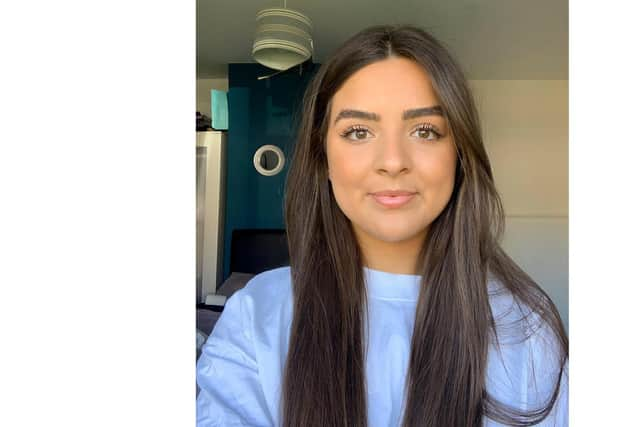

She said: ‘As soon as placement was put on hold I continued working as a healthcare assistant at QA, which was my part-time job, just because I thought they needed the staff and they had so many shifts going.
‘Then when they asked if we could work as nurses in the hospital it wasn’t a question, I didn’t question it.
‘It was my first time in critical care, it was quite overwhelming.
Advertisement
Hide AdAdvertisement
Hide Ad‘It’s really emotional to work in a hospital at the moment. I feel really honoured but feel really sad at the same time because we’re in a situation we’ve not been in before and it’s changing day by day.’
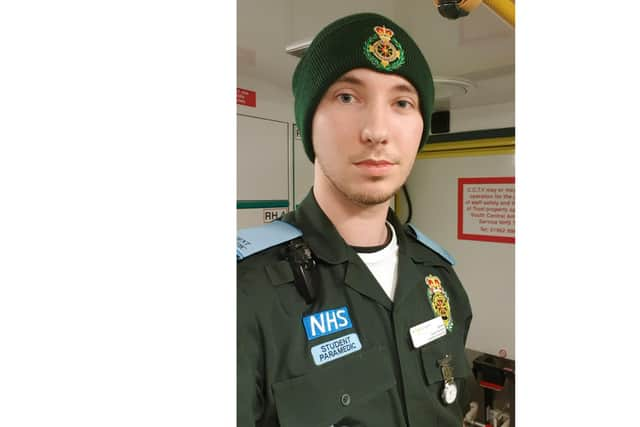

She added: ‘It has been hard being away from my own family. And I don’t know how it could be until I next see them because even when lockdown is lifted I’m still working in an environment with coronavirus.
‘But ultimately we love our jobs and all the nurses are so supportive of each other.’
‘IT WAS scary at first’ - Charles Tick was just six weeks away from qualifying when the pandemic hit.
Advertisement
Hide AdAdvertisement
Hide AdThe third-year adult nursing student from Kent is working full time in the haematology and oncology ward at QA.
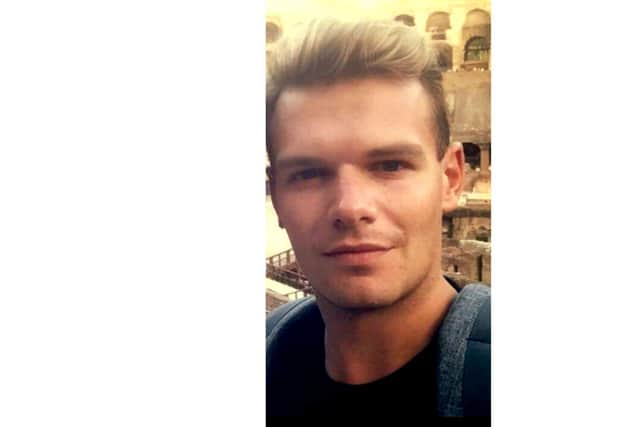

Charles, 32, who now lives in Hilsea, said: ‘I was on placement at the Rowans Hospice when it was cancelled. I submitted as soon as I could to work at QA but it took about four weeks for that to happen.
‘It was scary at first. We still have potential Covid patients but they are kept separate to others.
‘The staff have been amazing to us. They told us regardless of the fact we’re being paid we are still students and they have still been giving us lots of support.
Advertisement
Hide AdAdvertisement
Hide Ad‘I think nurses were very undervalued before, and it seems like that is now changing.
‘I have accepted a job here for when I finish which is great. My aim is to be a palliative care nurse.
‘I haven’t seen my family in four months. I am looking forward to when I can see them again.
'But overall I think being a small part of the whole picture is amazing.’
Advertisement
Hide AdAdvertisement
Hide AdFIRST year student James Hey said the experience so far has ‘definitely confirmed’ that he wants to be a paramedic.
The 22-year-old student paramedic from Gosport has been working in a patient transport service role since the university closed.
‘We transport patients to hospital for appointments, for example renal patients going for dialysis - they’re still essential appointments that can’t just be stopped for the pandemic,’ he said.
‘They said this is at your own risk but the opportunity is there if we want to help out. I told them my availability was whenever they need me. I had my training at the beginning of April.
Advertisement
Hide AdAdvertisement
Hide Ad‘They are crying out for staff. A lot of students have picked up bank work, which has been a help.
‘When I first started my paramedic course I was completely new to it. I didn’t really know how to talk to patients. Now I am getting that experience.
‘About half the people on my course are working for patient transport and others have already trained to be emergency care assistants.
‘We also take patients home from hospital. When you get a patient who has been told they’re well enough to go back home that’s great.
Advertisement
Hide AdAdvertisement
Hide Ad‘This experience has definitely confirmed that I want to be a paramedic.’
SECOND-YEAR student James Corney is completing his emergency driving training - something he hadn’t expected to do until after university.
The 22-year-old paramedic science student from Essex, who now lives in Southsea, has undertaken emergency care assistant training and is also working as a call handler for 111.
He said: ‘They abridged the emergency care assistant course, and shortened it down to two weeks. They’ve given us the opportunity to do that so we can go out on the front line.
Advertisement
Hide AdAdvertisement
Hide Ad‘I’ve now got to finish my three weeks emergency driving to be out with the ambulances, which is usually something you do after university before getting a job as a paramedic.
‘I was really keen to help and to get more front-line experience. I thought if I didn’t do this I will lose some of what I’ve learnt.
‘It’s great to feel like you are part of the solution, I’d much rather be doing something to help than sitting at home doing nothing.’
Speaking about his 111 work he added: ‘At the call centre we have been busier since the pandemic. We’ve been taking all the Covid response calls. It’s involved a slightly different script, a slightly different way of working. A good half of my workload at the moment is Covid.’
Advertisement
Hide AdAdvertisement
Hide Ad‘THE STAFF have been nurturing’ - third-year adult nursing student Emma Collar has thanked the QA nurses she is now working with on an intensive care unit.
Emma, 24, who lives in Portsmouth, is working directly with coronavirus patients in a full-time role on ICU.
She said: ‘Once I had opted in to work QA contacted me about a week later and a couple of days later I was working there.
‘I started working there on April 13. I asked for anything acute because at the beginning of this year I worked in intensive care at the hospital in Chichester before it got pulled because of coronavirus.
Advertisement
Hide AdAdvertisement
Hide Ad‘Everyone there is so facilitating and they coach you and don’t make you do anything you’re uncomfortable with. They’re still treating us like students, which is nice - they’re nurturing.
'It’s rewarding even though it’s horrible at the moment it can be really distressing at times. You’re learning so much.
‘I wanted to do this so I could continue my studies but also so I could do something to contribute no matter how small it feels it is at times. The staff are always telling us what we’re doing is amazing and saying thank you a lot.’
Comment Guidelines
National World encourages reader discussion on our stories. User feedback, insights and back-and-forth exchanges add a rich layer of context to reporting. Please review our Community Guidelines before commenting.